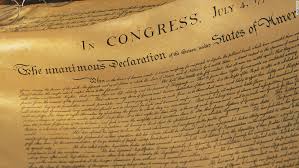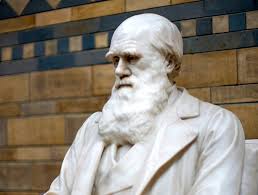
Topic
Darwin & the Declaration of Independence
The Declaration of Independence declared all men equal. Whatever the differences among humans, none amounted to the difference between humans and the animals that they could use as they saw fit. As equal to each other in this sense, no one had the right to rule or use anyone else, as all had the right to rule or use other animals. Legitimate government must arise, therefore, only from the consent of the governed. This sense of what justice required rested on the idea that humans formed a distinct kind, different from other animals and all other kinds of things found in the world. The distinctions between kinds were not arbitrary or invented, but natural. Men were created equal. Modern science does not share this understanding of nature. This is most clear in Darwinism, the view taking its bearing, if not its every claim, from Darwin’s Origin of Species. In its contemporary form, Darwinism denies that life is by nature organized into different kinds and that there is any rank of superior or inferior among natural beings. For some, this has come to mean that humans must treat animals as humans treat other humans. For others, it has come to mean that they may treat humans as humans treat animals. In either case, this is not the argument of the Declaration. What can be made of the Declaration’s argument in the light of modern science? And if in the Declaration’s view science was the ally of liberal politics, revealing in its spreading light the order of nature upon which those politics rested, what of the relation of science and politics now?






